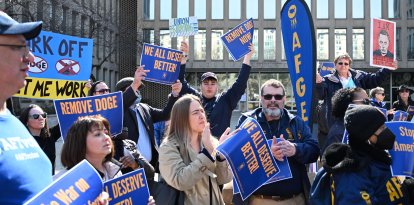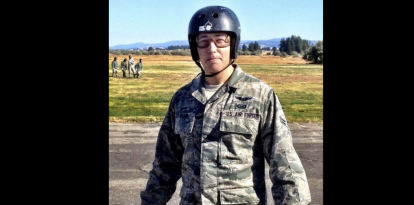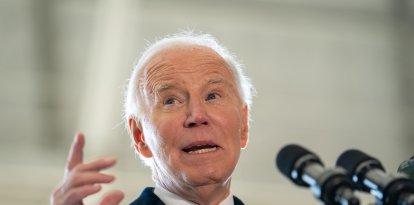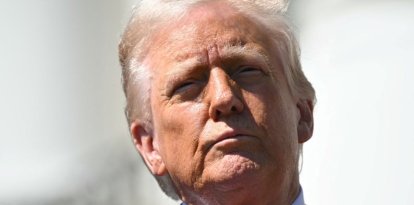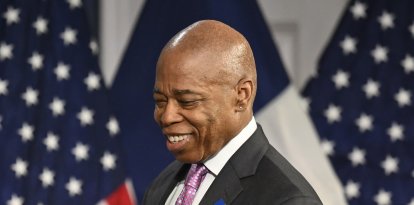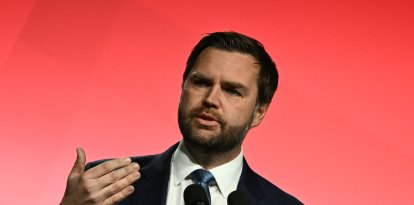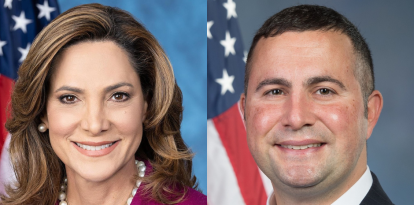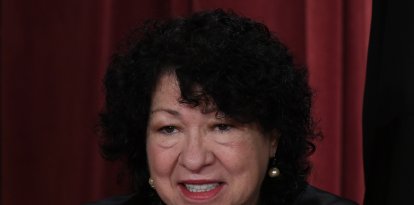What is Nikki Haley's strategy behind her decision not to participate in the Nevada Republican caucuses?
In her eagerness to reach South Carolina with opportunities, the former governor could take an unexpected blow in the February 6 primaries.
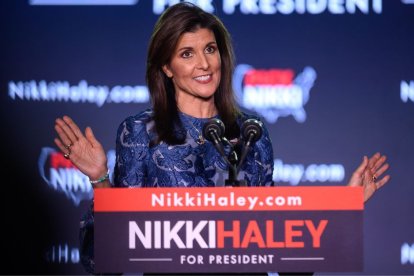
(Cordon Press)
If you are not following the intense pace of the Republican primaries, you may have overlooked a curious detail: next week, there will be the primary elections in Nevada, and the two leading Republican candidates, Donald Trump and Nikki Haley, will not share an electoral ballot and will not compete on the same day. It is a truly atypical situation that still has many unresolved questions.
First, you have to understand the state's electoral context. Due to a new state law signed by then-Democratic Governor Steve Sisolak in 2021, a primary-style voting day must be held in Nevada. However, how to distribute state delegates is up to the parties, thanks to a ruling by a local judge in 2023.
For this reason, the Nevada Republican Party decided that the delegates would be distributed in the Nevada caucuses, which will be held on February 8. This has been the traditional way of electing GOP candidates since 1980.
However, in a strange political move, former UN ambassador Nikki Haley decided to register only in the February 6 elections, which for the Nevada GOP represents nothing beyond the "brief bragging rights" politically.
In short, during the electoral assemblies directed by the party, the caucuses on February 8, where Trump will only face businessman and Texas pastor Ryan Binkley, the 26 delegates to the Republican National Convention, will be disputed.
Why did Nikki Haley decide not to run in the caucuses?
That's the million-dollar question. Haley has yet to explain her strategy, and many political analysts do not want to talk about it because they simply do not understand the move or the explanation behind the decision.
However, some dare to give their viewpoint on the matter, such as political analyst Eric Fajardo Pozo, master in political communication at George Washington University.
In a conversation with Voz Media, Fajardo stated that the Republican primaries, although they wanted to prevail "against all odds," will be "testimonial." He explained that Haley opted for them to stay alive in the electoral race and not accept a third consecutive defeat before the South Carolina primaries, her home state, which will take place on February 24.
"I think that in reality she knew that there was nothing to do in Nevada," Fajardo told Voz Media. "It is a state where she did not campaign, she does not have any type of operational political base and she knew she was going to lose. So, the decision is strategic: How to lose? Where to lose? Going to the primary always allows us to change the debate towards what is legitimate."
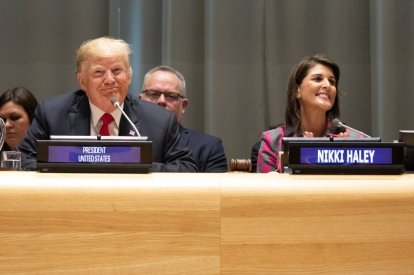
Polls show New Hampshire primary a battle between two candidates: Trump and Haley
Voz Media contacted Nikki Haley's campaign to get their version of the decision not to attend the Nevada caucuses, but there was no response.
According to Fajardo, it is counterproductive for Haley to "get on the scale with Donald Trump in a place where he is going to reap his third defeat."
"She skipped Nevada because she thinks she has a better chance of going 2-1 in South Carolina. She doesn't want to go 3-0 to her home state. She knew that the effect of Nevada would be completely adverse on the voters' psychology," Fajardo continued. He also described the former governor's situation as "very complicated" because it is still not known whether or she will be able to participate in Indiana elections.
Can Haley participate in the caucuses? Does she really have no rivals in the primaries?
If Haley suddenly wanted to participate in the Nevada caucuses organized by the Republican Party, the reality is that she cannot. The Nevada GOP made it clear that a candidate supporting the state primary would be officially banned from the caucuses.
Therefore, a priori, the results are predictable: on February 8, Trump will win the Republican caucuses and take with him the 26 delegates, and Nikki Haley, being the only important candidate in the primaries, will win on February 6 the right to impose a winning narrative to gain momentum heading into the South Carolina elections… or not?
Although no viable candidate can face Haley on February 6, an unexpected option could be a headache for her: "None of the above."
Nevada Republican Gov. Joe Lombardo said in an interview that he will endorse Trump in the Feb. 8 caucuses and will vote "None of the Above" in the Republican primary, encouraging voters to follow in his footsteps.
Lt. Gov. Stavros Anthony, also a Republican, announced in a statement that he will endorse Trump in the caucuses and will vote "None of the Above" in the state primary.
Former Attorney General Adam Paul Laxalt said this Friday on X (Twitter) that he cast his vote in the state primary and chose the "None of the above" option.
So, with Trump absent on the ballot, is it possible that Nikki Haley could lose to the "None of the Above" option in Nevada before the South Carolina primaries?
It's still too early to tell, but according to a Providence poll surveyed by the Washington Examiner, in a collaborative effort between Revere Solutions and DecipherAi, Haley could lose the Nevada primary.
According to the report, the poll "showed 59.2% of Nevada Republican primary voters saying they would select 'none of these candidates' during the Feb. 6 GOP primary election, compared to 40.8% who would choose Haley."
Woodrow Johnston, CEO of Revere Solutions, who is not affiliated with any presidential campaign, told the Washington Examiner that a loss for Haley in this primary could represent a knockout blow to her presidential run.
RECOMMENDATION
